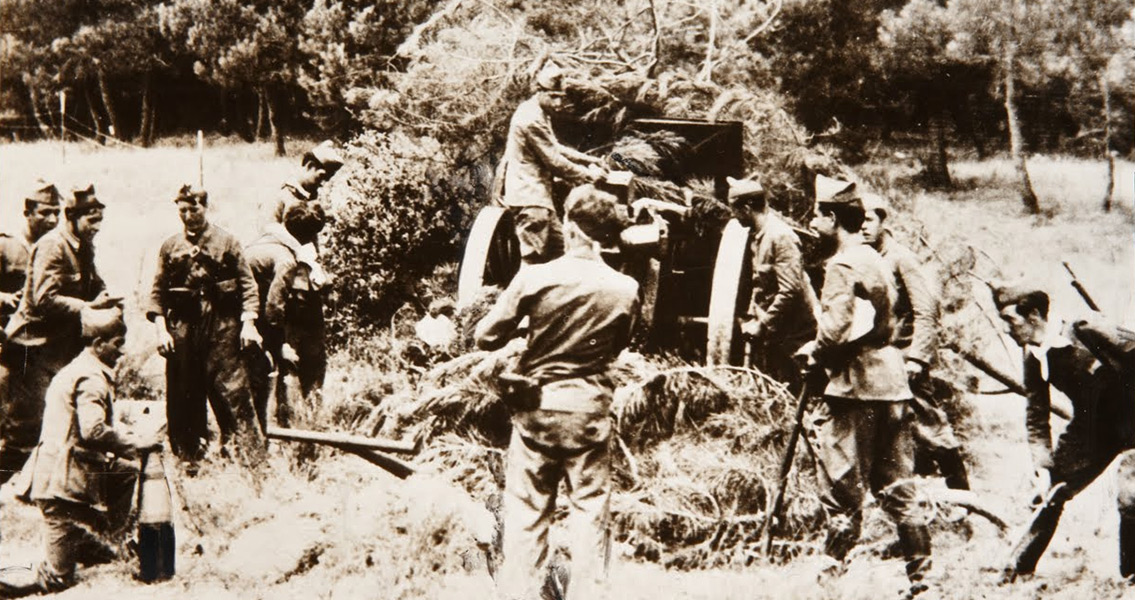<![CDATA[On 28th March, 1939, the Republican forces defending Madrid raised the white flag over the city. The event marked the drawing to a close of the Spanish Civil War, with Franco declaring victory in a radio broadcast on the 1st April. For three years Spain had been divided and devastated by the brutal conflict, one which seemed to encapsulate in viscous clarity the conflicts between left and right wing politics which shaped Europe in the middle of the twentieth century. For Spaniards it came to be a defining moment in their history, Franco's victory starting an era which the country is still responding to, forty years after his death. Predictably, the conflict had deep roots, reflecting a polarisation of Spanish society which had been developing over decades. In the early 1920s dissatisfaction was growing with the country's constitutional monarchy, based on a growing sense that it was an outdated anachronism hindering Spain's modernisation. A bloodless coup in 1923 saw King Alfonso XIII agree to let General Primo de Rivera take control of Spain. De Rivera headed a military dictatorship, but one which was surprisingly progressive, investing in public works projects to stimulate Spain's economy. It proved successful, and by 1930 Spanish industrial production had tripled. The Great Depression of the 1930s proved to be De Rivera's undoing, when he proved unable to cope with the unemployment or economic hardship caused by the crisis. As his popularity decreased so did the support of the military, the basis of his power, and he was forced to resign in 1931. In April, elections were held which resulted in an overwhelming victory for Republicanism. The monarchy was abolished and the king went into exile. A series of liberal reforms were implemented in Spain, including the removal of state funding for the Catholic Church, increased taxation on the wealthy, and growing autonomy for the Basque and Catalan regions. For five years the actions of the Republican government increased the divisions in Spanish society. Spanish Nationalists, a group which could be broadly summarised as including monarchists, the aristocracy, business men, the army and the Catholic Church, became increasingly aggressive in their opposition to the elected government. In July 1936, Franco led an army revolt in Morocco and the Spanish Civil War began. In 1937, the war took on an international context when military aid from Nazi Germany and Fascist Italy was supplied to the Nationalist forces. The Soviet Union sent aid to the Republicans, however, it did not prove as influential on the conflict. Volunteers from around the world also opted to fight in the war, something immortalised in George Orwell's Homage to Catalonia. Clearly, the divisions in Spanish society were taken to symbolise something much broader, a set of competing values which many felt had an international importance. By 1939 the Republican forces were in disarray, Barcalona was captured in January and the situation had clearly become unwinnable. The Republicans attempted to sue for peace but Franco refused to negotiate. Madrid was soon surrounded and the city eventually became divided when sections of the Republican forces began fighting with each other. On 28th March, Franco’s forces marched into Madrid. It marked the end of a conflict which had seen over a million people lose their lives and whole cities leveled by the shocking power of modern military technology. The reality of the consequences were most directly felt in Spain, but in some ways people around the world had felt a connection to the Spanish Civil War. ]]>
White Flag Over Madrid: Spanish Civil War Comes to An End
